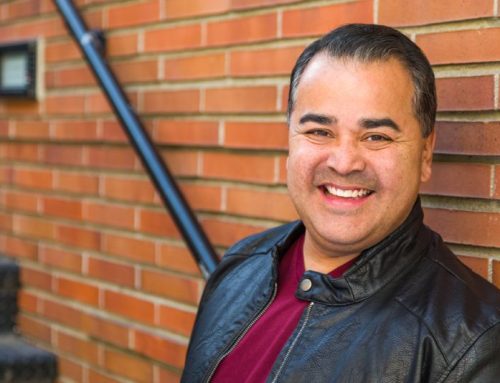Receiving a U.S. visa denial can be frustrating and discouraging, especially if you were hoping to visit, work, or reunite with family in the United States. However, a denial does not always mean the end of your immigration journey. In many cases, you can reapply or seek a waiver to overcome the reason for the denial.
Understanding why your visa was denied and what steps you can take next is crucial. Below, we explore the common reasons for visa denials, whether you can reapply, and what strategies may improve your chances of approval the next time around.
Why Was Your U.S. Visa Denied?
Before reapplying, it’s important to identify the reason your visa was denied. The U.S. Department of State provides a written explanation when a visa is refused, often citing a section of the Immigration and Nationality Act (INA). Some of the most common reasons for denial include:
- INA Section 214(b) – Failure to Prove Strong Ties to Your Home Country: Nonimmigrant visa applicants (such as tourist or student visa seekers) must demonstrate that they intend to return home after their stay in the U.S. If consular officers believe you lack strong ties, they may deny your visa.
- INA Section 221(g) – Incomplete Application or Insufficient Documentation: If required documents are missing, your application may be put on hold or denied. Some cases require additional administrative processing before a decision is made.
- INA Section 212(a) – Grounds of Inadmissibility: Some applicants are denied due to past immigration violations, criminal history, or public health concerns.
- Unlawful Presence and Bars to Reentry: If you previously overstayed a visa or entered the U.S. unlawfully, you may face a 3-year or 10-year ban.
Each of these reasons requires a different approach when reapplying. In some cases, reapplying with additional evidence may resolve the issue, while others may require a waiver or legal assistance.
Can You Reapply After a Visa Denial?
Yes, many applicants can reapply after a visa denial. However, the right approach depends on the reason for your initial refusal.
- If you were denied under INA 214(b): You can reapply at any time, but you must provide stronger proof of your ties to your home country, such as employment records, property ownership, or family responsibilities.
- If your application was denied under INA 221(g): You may only need to submit additional documents or complete administrative processing. In these cases, you typically receive instructions on what to provide.
- If you were deemed inadmissible under INA 212(a): You may need to apply for a waiver to overcome the grounds of inadmissibility before reapplying.
Reapplying without addressing the original reason for denial will likely result in another refusal. It’s important to carefully review your case and strengthen your application before submitting it again.
Should You Appeal or Apply for a Waiver Instead?
In some situations, rather than reapplying, it may be more beneficial to file an appeal or request a waiver. Here’s how to determine which option is right for you:
- Filing an Appeal: Visa denials typically cannot be appealed, except in cases where a petition was filed with U.S. Citizenship and Immigration Services (USCIS), such as employment-based visas. If your denial involved a USCIS decision, you may be able to file Form I-290B, Notice of Appeal.
- Requesting a Waiver: If your denial was based on inadmissibility (such as past immigration violations or criminal history), you may be eligible for a waiver. A Form I-601 Waiver of Grounds of Inadmissibility or a Form I-212 Application for Permission to Reapply may allow you to overcome a previous ban.
Consulting with an immigration attorney can help you determine whether an appeal or waiver is the best course of action in your situation.
How to Strengthen Your Visa Application When Reapplying
When reapplying for a visa, it’s essential to address the concerns that led to your denial. Here are some ways to improve your chances of approval:
- Gather Stronger Supporting Documents: Provide additional evidence of your intent to return home, such as a job offer letter, property records, or financial statements.
- Correct Any Errors: Ensure that your application is complete and that all required documents are included.
- Seek Legal Assistance: If you were denied due to inadmissibility, an immigration attorney can help you apply for a waiver or provide legal arguments to support your case.
- Prepare for the Visa Interview: Practice answering questions clearly and honestly, and bring all necessary documentation to support your application.
Taking these steps can help demonstrate to the consular officer that your circumstances have changed or that you are now fully qualified for a visa.
When Is the Best Time to Reapply?
The best time to reapply depends on the type of denial you received:
- For INA 214(b) Denials: You can reapply immediately, but waiting until you have new evidence of strong ties to your home country is advisable.
- For INA 221(g) Denials: If additional documentation was requested, submit it as soon as possible.
- For INA 212(a) Denials: You may need to wait until a waiver is approved before reapplying.
Reapplying too soon without addressing the reason for denial may result in another refusal, so it’s important to take the necessary time to strengthen your case.
Get Legal Help from Hanlon Law Group for Your U.S. Visa Journey
A visa denial can feel like a major setback, but it does not have to end your chances of traveling or immigrating to the United States. Whether you need to reapply, file for a waiver, or explore alternative options, taking the right steps is essential.
- Review your denial notice: Understand why your visa was refused and what steps are required to overcome the issue.
- Gather additional documentation: Strengthen your application with new evidence that addresses the concerns raised during your previous application.
- Consider a waiver: If inadmissibility was the reason for denial, apply for a waiver to improve your chances of approval.
- Consult an immigration attorney: Legal guidance can help ensure that your next application is as strong as possible.
At Hanlon Law Group, we help individuals and families overcome visa denials and secure legal entry into the U.S. If you need assistance with your visa application or waiver, contact us today for a consultation.




